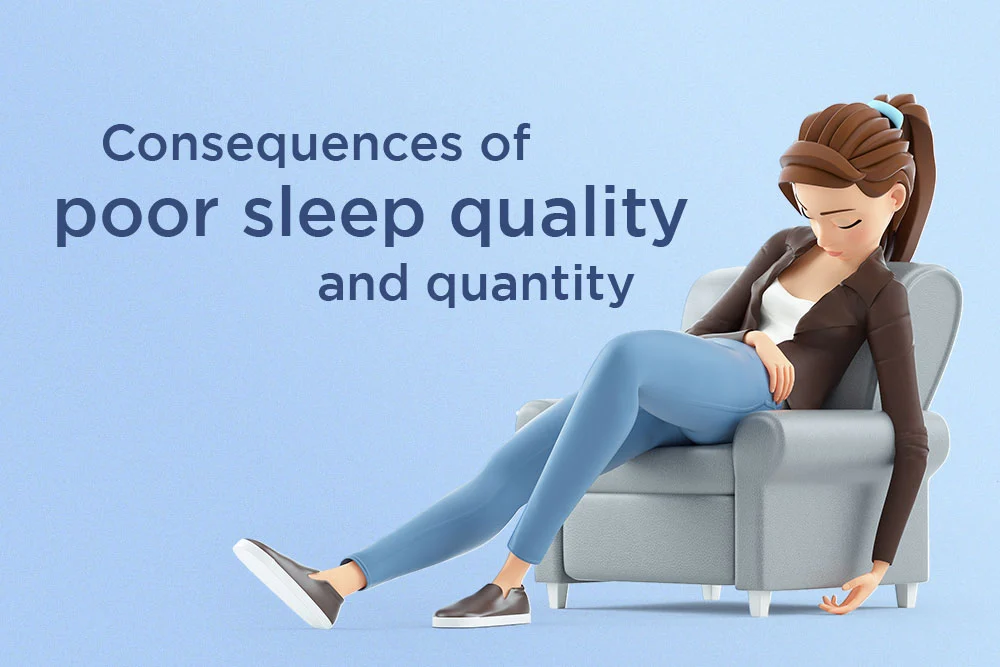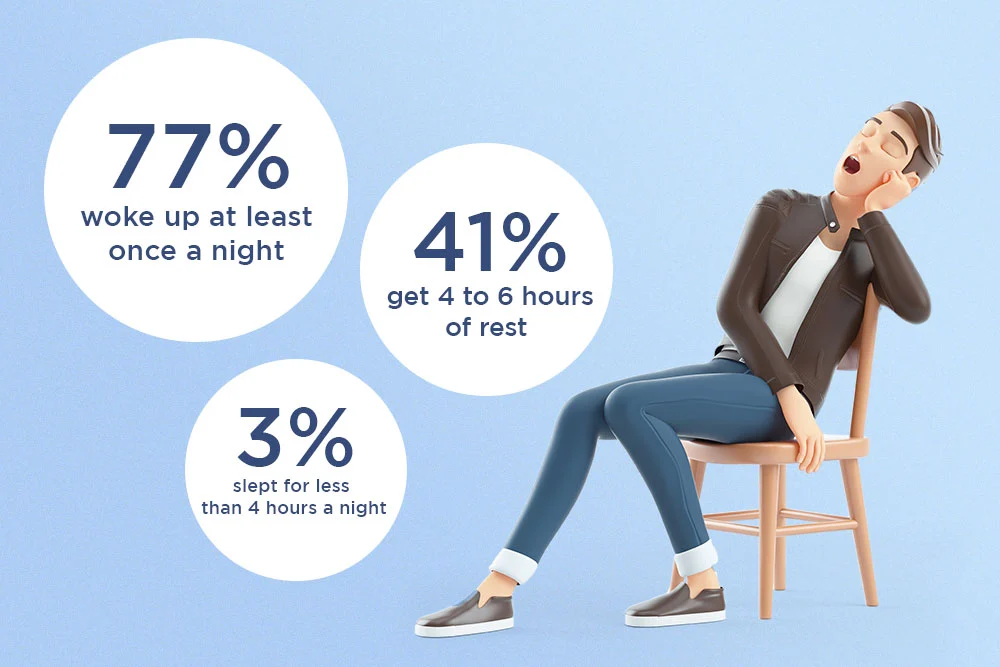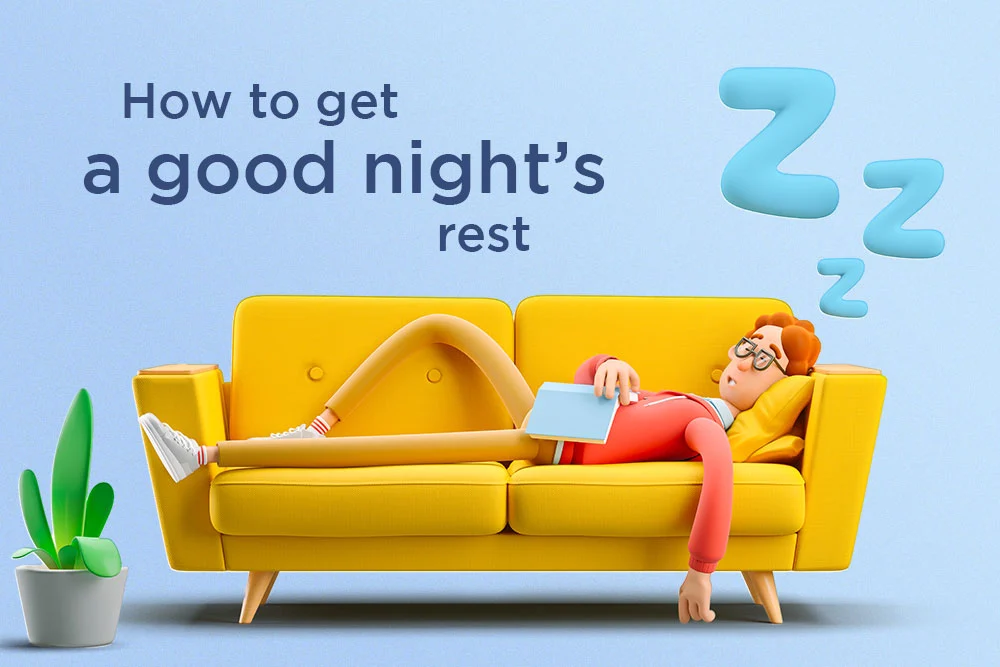It is midnight. You are frantically preparing for a work presentation tomorrow, which will take at least another hour or two.
Considering that you must wake up at 6am tomorrow, you will have a maximum of five hours of rest, if you can fall asleep immediately.
Sacrificing our rest in favour of work or other activities is not uncommon in Singapore.
A 2018 online poll by American market research company Wakefield Research found that Singapore was the second most sleep-deprived nation, after Britain. Over 60% of Singaporeans surveyed said they do not get sufficient sleep. Experts cite the fast pace of life, stress of living as well as sleep disorders as the reasons for our slumberland woes.
While some may downplay the effects of insufficient rest, research shows that it has a detrimental effect on our work performance.
Side effects of a lack of sleep

Generally, adults are recommended to sleep for seven to eight hours a day. However, many Singaporeans fail to satisfy this guideline.
Findings from a YouGov survey showed that a mere 41% managed to get four to six hours of rest while another 3% slept for less than four hours a night. Even when they fell asleep, 77% of survey respondents woke up at least once a night.

All these signs are worrying for a myriad of reasons.
For a start, sleep-deprived people fall sick more easily. They also have a higher risk of developing diabetes and obesity. At work, this translates to higher rates of absenteeism.
Beyond physical ailments, a Harvard Health Publishing article noted that our attention and concentration decrease without enough rest. Likewise, our problem-solving ability and alertness drop — all these mean reduced productivity and efficiency at work. In the worst-case scenarios, they can lead to fatal accidents.
Research also suggests that sleep sharpens our memory and helps us learn efficiently. This happens because we need to focus our attention to learn something. Besides that, it is also critical in consolidating our memory — a step that is key for acquiring new information. Given that we need to master new skills to keep up with the demands of our work, this poses a problem.
How to sleep better at night

If you want to perform your best at work, it is time to catch your 40 winks.
Here is what you can do.
1. Maintain a relaxing nighttime routine
Health Hub suggests listening to calming music, taking a hot shower, or reading a book to wind down for bedtime.
During this period, avoid more stimulating activities such as exercising, playing video games or watching loud movies as they have the reverse effect of keeping you awake.
A study published in the Sports Medicine journal found that vigorous exercises such as high-intensity interval training can cause us to take longer to fall asleep and sleep more poorly, if the exercise is done less than one hour before bedtime.
Similarly, the light from your phone and laptop keeps you alert so avoid using them one hour before bed or in bed.
Sleep disorders specialist Dr Harneet Walia explains that the blue light from our electronic devices suppresses our melatonin levels. Melatonin is a hormone that controls our sleep-wake cycle. When it is melatonin levels are low, we will feel tired during the day and experience insomnia.
If you have insomnia, try playing nature sounds or white music. Also, ensure that your room is dark and cool so that it is conducive for you to rest.
2. Limit your caffeine intake
Neurologist Dr Lim Li Ling recommends limiting your caffeine intake to three or four cups a day and consuming them before noon as the effects of caffeine can last 12 hours after consumption.
3. Exercise regularly
Besides improving your health, regular exercise during the day also has the added benefit of promoting better sleep quality.
According to Dr Charlene Gamaldo, medical director at Johns Hopkins Center for Sleep at Howard County General Hospital, exercise helps us to sleep better as it increases our core body temperature. After 30 to 90 minutes, our body temperature falls, making us sleepy.
Dr Gamaldo notes that individuals who do 30 minutes of aerobic exercise a day can experience better sleep quality.
Alternatively, engage in yin or restorative yoga to help yourself wind down before bed. These exercises help to calm your mind and release physical tension.
4. Manage your stress
It is no surprise that stress keeps us awake at night. Combat this issue with meditation, breathing exercises or practise mindfulness. If you are new to these practices, try downloading apps such as Calm, Headspace and Stop, Breathe & Think as they provide simple instructions on meditation and breathing exercises. All these methods help relieve stress and anxiety, so you lead a happier and healthier life in the long run.
5. Avoid taking long naps
Nap before 3pm and keep it to a maximum of 45 minutes to prevent it from disrupting your sleep cycle.
Your time in slumberland is precious — both your sleep quantity and quality contribute to your problem-solving ability, learning and focus. If you truly want to perform your best at work, it is time to prioritise your 40 winks instead of bingeing on that enticing new drama or working overnight.















